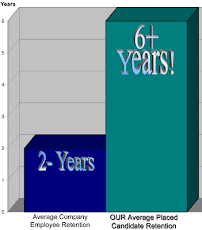Saturday
2011 Technology Innovation Awards
Nominations are now being accepted.
The Wall Street Journal invites companies, organizations and individuals world-wide to apply for the 2011 Technology Innovation Awards.
Winners will be chosen by an independent panel of judges and will be featured in The Journal's Technology Innovations Report, appearing October 10 online and in our three global editions.
Please complete and return this form with any supporting documentation by May 6, 2011 (6 p.m. New York time) to: innovation@wsj.com
The Wall Street Journal invites companies, organizations and individuals world-wide to apply for the 2011 Technology Innovation Awards.
Winners will be chosen by an independent panel of judges and will be featured in The Journal's Technology Innovations Report, appearing October 10 online and in our three global editions.
Please complete and return this form with any supporting documentation by May 6, 2011 (6 p.m. New York time) to: innovation@wsj.com
Monday
Cause of worker unproductivity is Web surfing
The studies seem to agree on this one. The No. 1 cause of worker unproductivity is Web surfing. But rather than deal with it, most employers I know turn their heads the other way and rely on the professionalism of their employees to keep things in check.
But if your company does play Internet traffic cop, be aware there is a right way and a wrong way to get people off the digital drug.
In a new working paper called Temptation at Work, Harvard Business School professor Marco Piovesan and colleagues Alessandro Bucciol and Daniel Houser point to one common practice as an example of the wrong way to do it. This is when employers ban Web surfing until after work hours.
The problem? Workers who are asked to use willpower to resist temptation are more likely to be less productive and make more mistakes in subsequent tasks. Employers would be better off either turning off outside Web service completely, or allowing specific times of the day for personal surfing, they write.
“Employers should not prohibit the Internet and yet leave it available. Instead, employers should either remove it entirely or, when doing this is impractical, allow employees a certain amount of time — maybe even as often as several minutes per hour — for personal Internet activity. Perhaps lunch-breaks can be somewhat shortened to accommodate “surf-time”. Alternatively, employers might consider allowing regular Internet breaks, in the same way that many currently accommodate short but not infrequent cigarette or coffee breaks.”
Hey, are you reading this at work?
By Sean Silverthorne | March 11, 2011
See Article:
http://www.bnet.com/blog/harvard/the-right-way-to-curb-personal-web-surfing-at-work/10604?promo=665&tag=nl.e665
But if your company does play Internet traffic cop, be aware there is a right way and a wrong way to get people off the digital drug.
In a new working paper called Temptation at Work, Harvard Business School professor Marco Piovesan and colleagues Alessandro Bucciol and Daniel Houser point to one common practice as an example of the wrong way to do it. This is when employers ban Web surfing until after work hours.
The problem? Workers who are asked to use willpower to resist temptation are more likely to be less productive and make more mistakes in subsequent tasks. Employers would be better off either turning off outside Web service completely, or allowing specific times of the day for personal surfing, they write.
“Employers should not prohibit the Internet and yet leave it available. Instead, employers should either remove it entirely or, when doing this is impractical, allow employees a certain amount of time — maybe even as often as several minutes per hour — for personal Internet activity. Perhaps lunch-breaks can be somewhat shortened to accommodate “surf-time”. Alternatively, employers might consider allowing regular Internet breaks, in the same way that many currently accommodate short but not infrequent cigarette or coffee breaks.”
Hey, are you reading this at work?
By Sean Silverthorne | March 11, 2011
See Article:
http://www.bnet.com/blog/harvard/the-right-way-to-curb-personal-web-surfing-at-work/10604?promo=665&tag=nl.e665
Sunday
PermanTech Chosen to participate in MIT Research Collaborative

Massachusetts Institute of Technology
Job Search Research Collaborative
In light of the current labor market crisis, the MIT Job Search Research Collaborative, has chosen Permantech to participate in researching job search and recruiting strategies and experiences. The ultimate goal is to provide more effective job search support and advice to job seekers.
"we are pleased to be asked and honored to assist such an important study. I hope the results positively assist job seekers-current and future" said Gary Perman, President of Permantech.
!
Subscribe to:
Comments (Atom)













